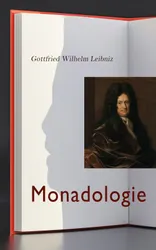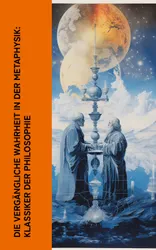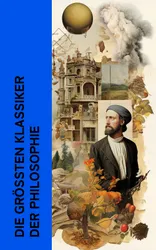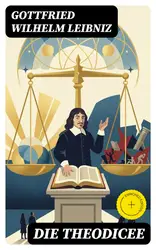In 'Essays of Theodicy' by Gottfried Wilhelm Leibniz, the author delves into philosophical inquiries regarding the existence of God and the problem of evil, presenting a complex and intricate argument that blends theology, philosophy, and rationalism. Leibniz's writing style is characterized by its precise reasoning and logical structure, making his work both challenging and enlightening for readers. Situated within the context of 17th-century Enlightenment thought, the book represents a significant contribution to the ongoing debate on the nature of divinity and human suffering, drawing from both Christian theology and Leibniz's own philosophical system of monads. The richness of Leibniz's insights and the depth of his arguments provide readers with a thought-provoking exploration of theodicy that transcends traditional religious discourse. Gottfried Wilhelm Leibniz, a German polymath and philosopher, was driven by a lifelong pursuit of understanding the nature of reality and the human experience. His interest in metaphysics, mathematics, and theology influenced his writing of 'Essays of Theodicy', showcasing his intellectual curiosity and innovative thinking. Leibniz's interdisciplinary approach and unique perspective on theodicy make his work a compelling read for those interested in philosophy, theology, and intellectual history. I recommend 'Essays of Theodicy' to readers seeking a challenging and thought-provoking exploration of the problem of evil and the nature of divine justice. Leibniz's nuanced arguments and philosophical insights offer a fresh perspective on timeless questions, making this book a valuable addition to any scholarly or philosophical library.

Monadologie
Gottfried Wilhelm Leibniz
book
50 Meisterwerke der Philosophie : Metaphysik, Das Gastmahl, Bhagavadgita, Tractatus logico-philosophicus, Kritik der reinen Vernunft, Also sprach Zarathustra, Selbstbetrachtungen von Marcus Aurelius
Ludwig Wittgenstein, Edmund Husserl, Karl Marx, Søren Kierkegaard, Friedrich Nietzsche, Ralph Waldo Emerson, John Stuart Mill, Georg Wilhelm Friedrich Hegel, Friedrich Schelling, Johann Gottlieb Fichte, Immanuel Kant, John Locke, Montesquieu, Jean Jacques Rousseau, David Hume, Gottfried Wilhelm Leibniz, Baruch Spinoza, Konfuzius, Laotse, Platon, Xenophon, Aristoteles, Marcus Tullius Cicero, Seneca, Epiktet, Marc Aurel, Plotin, Thomas von Aquin, Nicolaus von Cues, Erasmus von Rotterdam, Niccolò Machiavelli, Tommaso Campanella, Martin Luther, Giordano Bruno, Samuel von Pufendorf, Abbé Castel de Saint-Pierre, Michel de Montaigne, René Descartes, Francis Bacon, Blaise Pascal
book
Die Theodicee : Abhandlungen über die Theodizee von der Güte Gottes, der Freiheit des Menschen und dem Ursprung des Bösen
Gottfried Wilhelm Leibniz
book
Metaphysik: Zwischen flüchtiger Wahrheit und ewiger Suche : Meisterwerke der Philosophie: Metaphysische Anfangsgründe der Naturwissenschaft, Träume eines Geistersehers, Grundzüge der Philosophie, Götzen-Dämmerung
Platon, Aristoteles, Plotin, Thomas von Aquin, René Descartes, Baruch Spinoza, Thomas Hobbes, Immanuel Kant, Gottfried Wilhelm Leibniz, Friedrich Wilhelm Joseph Schelling, Georg Wilhelm Friedrich Hegel, Arthur Schopenhauer, Moses Mendelssohn, Friedrich Nietzsche, Rudolf Steiner
book
Meisterwerke der Weltphilosophie : Das Gastmahl, Nikomachische Ethik, Also sprach Zarathustra, Utopia, Phänomenologie des Geistes, Neues Organon, Selbstbetrachtungen
Immanuel Kant, Søren Kierkegaard, Edmund Husserl, Ludwig Wittgenstein, Friedrich Nietzsche, Konfuzius, Platon, Xenophon, Aristoteles, Laotse, Marcus Tullius Cicero, Marcus Aurelius, Plotin, Thomas von Aquin, Niccolò Machiavelli, Thomas Morus, Giordano Bruno, Michel de Montaigne, René Descartes, Francis Bacon, Blaise Pascal, Baruch Spinoza, Gottfried Wilhelm Leibniz, David Hume, Jean Jacques Rousseau, Friedrich Schelling, John Locke, Georg Wilhelm Friedrich Hegel, John Stuart Mill, Karl Marx
book
Die vergängliche Wahrheit in der Metaphysik: Klassiker der Philosophie : Metaphysische Anfangsgründe der Naturwissenschaft, Träume eines Geistersehers, Grundzüge der Philosophie, Götzen-Dämmerung
Platon, Aristoteles, Plotin, Thomas von Aquin, René Descartes, Baruch Spinoza, Thomas Hobbes, Immanuel Kant, Gottfried Wilhelm Leibniz, Friedrich Wilhelm Joseph Schelling, Georg Wilhelm Friedrich Hegel, Arthur Schopenhauer, Moses Mendelssohn, Friedrich Nietzsche, Rudolf Steiner
book
Die größten Klassiker der Philosophie : Also sprach Zarathustra, Utopia, Phänomenologie des Geistes, Neues Organon, Selbstbetrachtungen, Das Gastmahl, Nikomachische Ethik
Immanuel Kant, Søren Kierkegaard, Edmund Husserl, Ludwig Wittgenstein, Friedrich Nietzsche, Konfuzius, Platon, Xenophon, Aristoteles, Laotse, Marcus Tullius Cicero, Marcus Aurelius, Plotin, Thomas von Aquin, Niccolò Machiavelli, Thomas Morus, Giordano Bruno, Michel de Montaigne, René Descartes, Francis Bacon, Blaise Pascal, Baruch Spinoza, Gottfried Wilhelm Leibniz, David Hume, Jean Jacques Rousseau, Friedrich Schelling, John Locke, Georg Wilhelm Friedrich Hegel, John Stuart Mill, Karl Marx
book
Gottfried Wilhelm Leibniz - Die Theodicee : Abhandlungen über die Theodizee von der Güte Gottes, der Freiheit des Menschen und dem Ursprung des Bösen
Gottfried Wilhelm Leibniz
book
Leibniz: Oeuvres Majeures
Gottfried Wilhelm Leibniz
book
8 Oeuvres de Leibniz : Exploration de la pensée rationnelle et métaphysique du philosophe allemand du XVIIe siècle
Gottfried Wilhelm Leibniz
book
Die Theodicee : Abhandlungen über die Theodizee von der Güte Gottes, der Freiheit des Menschen und dem Ursprung des Bösen
Gottfried Wilhelm Leibniz
book
Gottfried Wilhelm Leibniz - Die Theodicee : Abhandlungen über die Theodizee von der Güte Gottes, der Freiheit des Menschen und dem Ursprung des Bösen
Gottfried Wilhelm Leibniz
book
